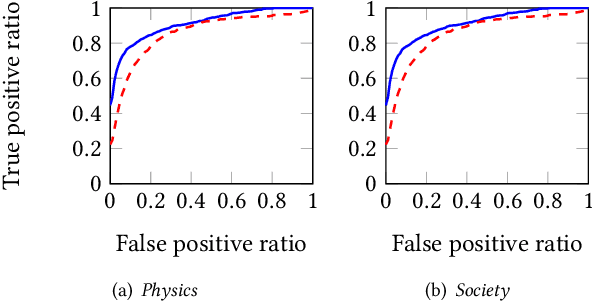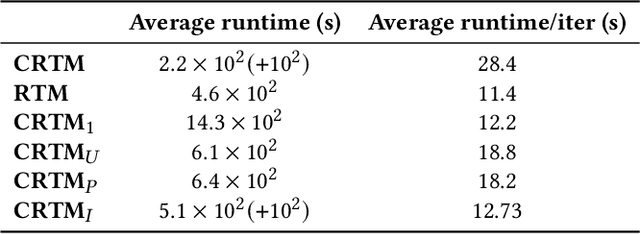Anchor Prediction: A Topic Modeling Approach
Paper and Code
Jun 01, 2022



Networks of documents connected by hyperlinks, such as Wikipedia, are ubiquitous. Hyperlinks are inserted by the authors to enrich the text and facilitate the navigation through the network. However, authors tend to insert only a fraction of the relevant hyperlinks, mainly because this is a time consuming task. In this paper we address an annotation, which we refer to as anchor prediction. Even though it is conceptually close to link prediction or entity linking, it is a different task that require developing a specific method to solve it. Given a source document and a target document, this task consists in automatically identifying anchors in the source document, i.e words or terms that should carry a hyperlink pointing towards the target document. We propose a contextualized relational topic model, CRTM, that models directed links between documents as a function of the local context of the anchor in the source document and the whole content of the target document. The model can be used to predict anchors in a source document, given the target document, without relying on a dictionary of previously seen mention or title, nor any external knowledge graph. Authors can benefit from CRTM, by letting it automatically suggest hyperlinks, given a new document and the set of target document to connect to. It can also benefit to readers, by dynamically inserting hyperlinks between the documents they're reading. Experiments conducted on several Wikipedia corpora (in English, Italian and German) highlight the practical usefulness of anchor prediction and demonstrate the relevancy of our approach.
 Add to Chrome
Add to Chrome Add to Firefox
Add to Firefox Add to Edge
Add to Edge